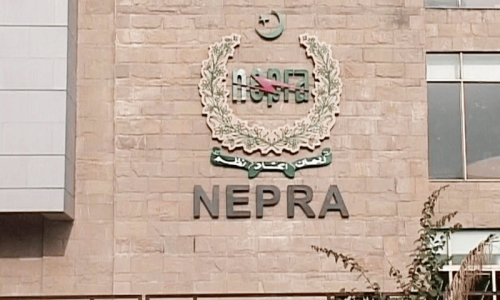ISLAMABAD: With eyes fixed on the upcoming budget, the Ministry of Commerce has evolved a comprehensive tariff policy including reducing customs and regulatory duties on raw materials and semi-finished products.
The plan is being developed for budget 2020-21 in a fashion to mitigate the impact of Covid-19 and encourage import substitution of major consumer items in the country, Commerce Adviser Abdul Razak Dawood told Dawn on Tuesday.
He said that as part of reforms his ministry has identified almost 1,600 tariff lines for duty reduction in the upcoming budget. These tariff lines are related to raw materials and semi-finished products, which are currently subject to a customs duty of more than 5pc and additional customs duty.
In the last budget, Dawood said his government had reduced customs duty to zero per cent on 1,638 tariff lines, which involved mostly raw materials. “For this year, we are considering to reduce duties on an almost similar number of tariff lines,” he said, adding nothing has been finalised as yet.
At the same time, he said the commerce ministry will also identify tariff anomalies for rectification in the upcoming budget. “We have already identified a number of anomalies in consultation with relevant stakeholders.”
Since November 2019, the adviser said his ministry has started consultations with the stakeholders to get their proposals. “We will try to consider all their recommendations in the upcoming budget,” the adviser said.
He said that in the next two budgets — 2020-21 and 2021-22 — the tariff rationalisation plan will be completed and the main focus of the reforms is to promote “Make in Pakistan”.
The adviser claimed that in the pre-coronavirus period, deindustrialisation trend was halted by the ruling government. “It was one of our major achievements”, he said. However, he said that there is now a great pressure on the domestic industries in the post-pandemic world.
According to Dawood, the focus of tariff reforms in the next budget is reducing the input cost of industries. “Now there is a pressure on Make in Pakistan,” he said, and his ministry will concentrate on domestic commerce to consider all-out support for industries.
He said the revival of industries will help to provide employment opportunities for those who lost their jobs due to the coronavirus outbreak in the country and subsequently lockdown.
Pakistan imports consumer items, most of which are from China. There is a big scope for import substitution as most of the products require simple technology.
The country spends millions of dollars every year on importing consumer items like value-added food products, personal care, home appliances and other household items.
Electronic appliances, rubber tyres, pharmaceutical items, plastic toys, tupperware, earphones, bulbs, handbags, stationery — are already being imported from China in bulk.
In the early 1980s, the import substitution policy was replaced by export-oriented industrialisation which instead created an import-oriented economy. The Covid-19 again set the stage for reversing the trend to import substitution in the country.
Published in Dawn, May 27th, 2020















































